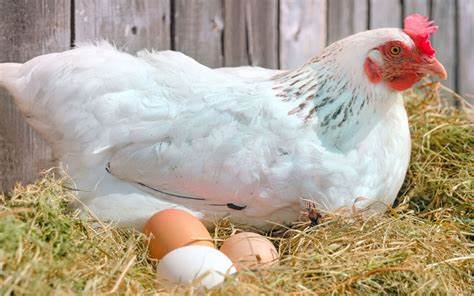Chicken Egg Care: Tips for Caring for Laying Hens and Boosting Egg Production
Introduction
Caring for laying hens requires thoughtful attention to their well-being and environment to ensure optimal egg production. Proper chicken egg care is essential for keeping your hens healthy, productive, and happy. In this comprehensive guide, we’ll explore everything you need to know about raising backyard chickens, from selecting the right breeds to creating a comfortable living space and maintaining a balanced diet. Whether you’re a first-time chicken owner or an experienced farmer, these tips will help you enhance egg production and enjoy the benefits of fresh, home-laid eggs.
1. Choosing the Right Breeds
Choosing the right breed is one of the most important decisions you’ll make when starting your backyard chicken journey. Different chicken breeds produce varying amounts of eggs, and the quality, size, and color of the eggs can also differ based on the breed. Understanding these differences will help you pick the ideal hens for your needs.
Some popular laying hen breeds include:
- Rhode Island Reds: Known for their hardiness and reliability, Rhode Island Reds are excellent egg producers, laying around 250-300 brown eggs per year.
- Leghorns: These hens are prolific layers, producing up to 300-320 large white eggs annually. They are lightweight birds, making them an economical choice for egg production.
- Australorps: A favorite for backyard flocks, Australorps are known for their calm nature and consistent egg production, laying 250-280 brown eggs per year.
It’s also important to consider egg color preferences. While most people are familiar with brown or white eggs, some breeds, like Ameraucanas, lay blue or green eggs, adding a colorful variety to your basket.
2. Creating a Comfortable Living Space
A comfortable, safe living environment is crucial for your hens’ health and productivity. A well-designed chicken coop helps protect hens from the elements and predators, while also providing them with a peaceful space to rest and lay eggs.
Key features of a good chicken coop include:
- Size: Each hen requires 3-5 square feet of indoor space to move around comfortably, while outdoor space for roaming should provide 8-10 square feet per bird.
- Ventilation and Insulation: Proper ventilation keeps the air inside the coop fresh, preventing respiratory issues. In colder climates, insulating the coop helps maintain a stable temperature.
- Predator Protection: Securing the coop with strong, durable materials is essential to prevent predators like foxes, raccoons, or hawks from attacking your flock.
Creating an environment that is both safe and comfortable encourages hens to lay regularly and reduces stress, which can negatively impact egg production.
Nesting Boxes: A Cozy Spot for Egg Laying
Nesting boxes are critical for laying hens, as they provide a quiet, secure place to lay eggs. To ensure your hens are comfortable, follow these guidelines:
- Number of Boxes: Provide at least one nesting box for every 4-5 hens.
- Bedding: Use soft bedding materials like straw or wood shavings to create a cozy environment inside the boxes.
- Encouragement: Hens may need encouragement to use the boxes. Placing a fake egg or golf ball in the nesting box can help train them to lay in the right spot.
When hens feel secure in their nesting area, they are more likely to lay eggs consistently and avoid unwanted behaviors like laying eggs outside the coop.
3. Providing Balanced Nutrition for Optimal Egg Production
Proper nutrition is the cornerstone of good egg production. A well-balanced diet ensures your hens get the necessary nutrients to lay healthy eggs with strong shells.
The components of high-quality chicken feed include:
- Protein: Hens need a diet rich in protein to support egg development. Most commercial feeds contain at least 16% protein.
- Vitamins and Minerals: Vitamins like A, D, and E, along with minerals like calcium and phosphorus, are vital for healthy egg production and overall hen health.
In addition to a balanced feed, hens need access to fresh, clean water at all times. Dehydration can quickly affect egg production, so it’s crucial to keep their water supply full.
Supplements and Treats: Enhancing Hen Health and Happiness
Adding supplements and occasional treats to your hens’ diet can improve their health and happiness. Some beneficial additions include:
- Probiotics and Vitamins: These help promote a healthy digestive system and boost the immune system, keeping hens strong and less prone to illness.
- Calcium Sources: Crushed oyster shells or limestone should be provided as a supplement to ensure strong eggshells.
- Safe Treats: Vegetable scraps, fruits, and grains can be given in moderation to keep hens happy, but treats should not exceed 10% of their daily diet.
Balancing these supplements and treats with their primary feed will ensure hens remain productive and healthy.
4. Establishing a Daily Care Routine for Happy Hens
A consistent daily care routine is essential for maintaining a happy and healthy flock. Routine care helps establish trust between you and your chickens and ensures their needs are met.
Key aspects of daily care include:
- Feeding and Watering: Provide food and fresh water daily. Ensure that your chickens have access to enough feed to support their egg production.
- Egg Collection: Collect eggs at least once a day to prevent hens from developing bad habits like egg eating, which can be difficult to stop once it starts.
- Cleaning: Clean out the coop and nesting boxes weekly to remove waste, soiled bedding, and debris. A clean environment prevents the spread of disease and reduces the risk of parasites.
By establishing a regular routine, you’ll create a stable environment for your hens, reducing stress and encouraging steady egg production.
5. Monitoring Chicken Health: Signs to Watch For
Monitoring the health of your flock is vital to prevent illness and maintain productivity. Healthy hens are active, alert, and lay consistently, but when problems arise, early detection can make a significant difference.
Signs of potential health issues include:
- Lethargy: Hens that are unusually tired or inactive may be experiencing health problems.
- Droppings: Changes in the color, consistency, or frequency of droppings can indicate digestive issues or parasites.
- Feather Loss: While molting is a natural process, excessive feather loss outside of molting season could signal an underlying health issue.
Regular parasite checks and preventive measures like dusting the coop with diatomaceous earth can help keep your hens free from lice and mites.
6. Managing Light Exposure to Support Consistent Egg Production
Light plays a critical role in egg production, as hens require approximately 12-14 hours of daylight to lay eggs consistently. During shorter winter days, supplemental lighting can help maintain egg production.
Consider using:
- Automatic Timers: Installing a timer for supplemental lighting can ensure your hens receive the necessary light exposure without disrupting their natural sleep patterns.
- Natural Light: Allow your hens access to outdoor areas during daylight hours to ensure they get sufficient exposure to natural light.
Maintaining consistent lighting year-round will help prevent drops in egg production during the winter months.
7. Understanding Natural Egg Laying Patterns Over Time
Egg production naturally changes over time, and understanding these patterns can help you manage your expectations as your hens age.
- Start of Laying: Most hens begin laying eggs between 20-22 weeks of age.
- Peak Production: The first two years are typically the most productive for laying hens. After that, egg production may gradually decline.
- Molting: Hens will experience periods of molting, where they shed and regrow feathers. During this time, egg production may temporarily stop.
Recognizing these natural cycles can help you plan for new additions to your flock and manage egg production efficiently.
Conclusion
Caring for laying hens requires dedication and attention to detail, but the rewards of fresh, home-laid eggs are well worth the effort. By choosing the right breeds, creating a comfortable living space, providing balanced nutrition, and maintaining a consistent care routine, you can ensure your hens stay healthy and productive. Implementing these best practices for chicken egg care will not only improve your hens’ well-being but also increase the quality and quantity of the eggs they produce. With a little time and effort, you’ll be enjoying the benefits of happy, well-cared-for chickens and an abundance of fresh eggs from your backyard.




